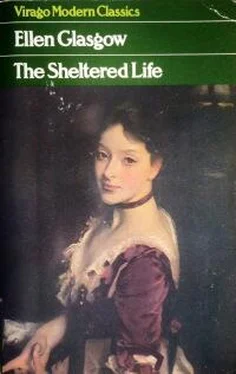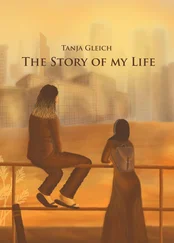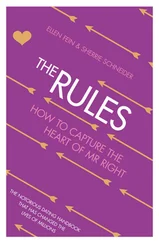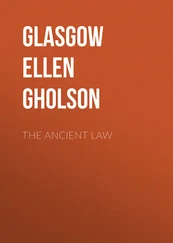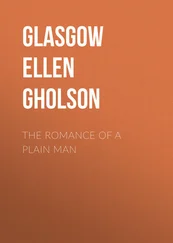Ellen Glasgow - The Sheltered Life
Здесь есть возможность читать онлайн «Ellen Glasgow - The Sheltered Life» весь текст электронной книги совершенно бесплатно (целиком полную версию без сокращений). В некоторых случаях можно слушать аудио, скачать через торрент в формате fb2 и присутствует краткое содержание. Жанр: Классическая проза, на английском языке. Описание произведения, (предисловие) а так же отзывы посетителей доступны на портале библиотеки ЛибКат.
- Название:The Sheltered Life
- Автор:
- Жанр:
- Год:неизвестен
- ISBN:нет данных
- Рейтинг книги:5 / 5. Голосов: 1
-
Избранное:Добавить в избранное
- Отзывы:
-
Ваша оценка:
- 100
- 1
- 2
- 3
- 4
- 5
The Sheltered Life: краткое содержание, описание и аннотация
Предлагаем к чтению аннотацию, описание, краткое содержание или предисловие (зависит от того, что написал сам автор книги «The Sheltered Life»). Если вы не нашли необходимую информацию о книге — напишите в комментариях, мы постараемся отыскать её.
The Sheltered Life — читать онлайн бесплатно полную книгу (весь текст) целиком
Ниже представлен текст книги, разбитый по страницам. Система сохранения места последней прочитанной страницы, позволяет с удобством читать онлайн бесплатно книгу «The Sheltered Life», без необходимости каждый раз заново искать на чём Вы остановились. Поставьте закладку, и сможете в любой момент перейти на страницу, на которой закончили чтение.
Интервал:
Закладка:
After Aunt Isabella's return, things were said that no wakeful ears could avoid hearing, and these remarks, though obscure in sense, were sufficiently eloquent in punctuation. Listening carefully, Jenny Blair had gathered from Aunt Etta's tearful reproaches that Aunt Isabella was blameless in thought and act, but mysteriously tarnished in reputation. Like the silver spoon Zoana, the cook, had left out all night in the grass, poor Aunt Isabella's shining lustre had been impaired by exposure. Immediately, Thomas Lunsford, who appeared to seek brightness alone, had ceased to call in the evenings; and not only Thomas, but all the other gay young men had flown away as swiftly as summer moths when the lamp is put out. A few of these, it is true, returned secretly at twilight, when Aunt Isabella lingered under the rose-arbour at the end of the garden; but after Joseph Crocker began repairing the stable, these twilight lingerings had changed to bolder daylight excursions.
There wasn't the slightest doubt in Jenny Blair's mind that God, who was watching over these occasions, had arranged everything for the best. Certainly, no young man in Aunt Isabella's circle could hold a candle, the child decided, to Joseph Crocker. Not only had she disliked Thomas Lunsford, but she was convinced that plenty of good things to eat improve any love scene on earth; and Aunt Isabella's little trays made her flirtation with Joseph very nearly as nice as a picnic. Besides, though Joseph, as her mother insisted, was far too good-looking for a carpenter, he never pulled Jenny Blair's plaits and never tried to be superior about dolls. Instead, he treated her as an equal, and discussed sensible subjects, like dogs and horses and how to mend things that are broken. Whenever she could spare time from her lessons, she would steal out to the stable and watch the skilful way the two men sorted and handled their tools. It must be wonderful, she thought, to own a basket of tools, or, better still, to have a real tool-chest. If only she had been born a boy, she would choose to be a carpenter instead of a lawyer like Grandfather, who didn't have half so much fun as old Mr. Crocker.
"Jenny Blair!" her mother called in an excited tone. "Jenny Blair, do you wish to see Mrs. Birdsong in her new violet toque?"
Springing to her feet, the child rushed into the library and flung herself between the red damask curtains. "Oh, Mamma, is she coming? Do you suppose she will speak to us?"
CHAPTER 2
Mrs. Birdsong was one of those celebrated beauties who, if they still exist, have ceased to be celebrated. Tall, slender, royal in carriage, hers was that perfect loveliness which made the hearts of old men flutter and miss a beat when she approached them. Everything about her was flowing, and everything flowed divinely. Her figure curved and melted and curved again in the queenly style of the period; her bronze hair rippled over a head so faultless that its proper setting was allegory; her eyes were so radiant in colour that they had been compared by a Victorian poet to bluebirds flying.
She had been, at eighteen, the reigning beauty of Queenborough in an age when only authentic loveliness could hope to be crowned. For the first five years of the eighteen nineties, she had gathered the hearts of men (here the poet speaks again) in her hands. When she appeared every party turned into a pageant. She could make a banquet of the simplest supper merely by sitting down at the table. The Victorian age, even in its decline, worshipped beauty and she was as near perfection in her girlhood as if she had stepped out of some glimmering antique horizon. Moreover, as if form and colour were not sufficient, nature had endowed her with a singing voice so pure in quality that the most famous Romeo of his day had declared her soprano notes to be worthy of Melba. Enraptured by his discovery, he had begged for the privilege of training a new Juliet, and Mrs. Birdsong's family still believed that only an unwise marriage had intervened in the way of a world conquest. For, without warning, to the astonishment and despair of her admirers, Eva Howard had tossed her triumphs aside and eloped with George Birdsong, the least eligible of her suitors. George Birdsong had charm and was unusually well-favoured; but he was nothing more than a struggling attorney, who would be hard pressed to keep a modest roof over her head.
All this had happened twelve years before, and the marriage, so far as one could see, had turned out very well. George, though imperfectly faithful, still adored Eva; and Eva, living on a meagre income and doing a share of her own work, seemed to be happy. Even after George had inherited a modest fortune and thrown it away, the romantic glamour appeared not to diminish. Eva's radiance was so imperishable that, as Mrs. Archbald once remarked, it might have been painted. Happiness looked like that, she added impulsively, but, then, proper pride often flaunted the colours of happiness. "Nobody will ever find out what regrets Eva has had," she had concluded. "Not even if he takes the trouble to unscrew the lid of her coffin."
Now, as she approached the house, Mrs. Birdsong walked buoyantly. The toque of violets on her bronze waves was poised at the correct angle; her puffed sleeves were held back, and her narrow waist was bent slightly; one slender hand, in white kid, grasped the flaring folds of her black taffeta skirt, which trailed on the ground whenever it slipped from her fingers. To a superficial observer, she presented a vision of serene elegance; but Mrs. Archbald was very far indeed from being a superficial observer. "I wonder what is the matter now," she said to herself, pushing aside the curtains and leaning over the window-box of clove pinks and geraniums.
Thinking herself alone in the street, unaware of the row of admiring spectators, Mrs. Birdsong had permitted her well-trained muscles to relax for a moment, while her brilliance suddenly flickered out, as if the sunshine had faded. The corners of her mouth twitched and drooped; her step lost its springiness; and her figure appeared to give way at the waist and sink down for support into the stiff ripples of taffeta. Then, as quickly as her spirit had flagged, it recovered its energy, and sprang bad into poise. As the first whisper reached her, her tired features were transfigured by an arch and vivacious smile. Glancing up at the window, she waved gaily. Starry eyes, curving red lips, the transparent flush in her cheeks, even the delicate wings of her eyebrows,--all seemed to be woven less of flesh than of some fragile bloom of desire.
"How adorable she looks," Etta sighed, with an emotion so intense that it was almost hysterical. Leaning out, she asked eagerly, "Eva, can't you come in for a minute?"
Mrs. Birdsong shook her head with a gesture of regret that was faintly theatrical. Her expression, so pale and wistful the moment before, was charged now with vitality. "Not this afternoon, dear. George will be waiting for me." Then, as if she had drained some sparkling delight from admiration, she passed on to the modest house at the other end of the block.
"I can't believe she was ever more beautiful," Etta murmured, without envy. Her long, bleak face, tinged with the greenish pallor of the chronic invalid, broke out into wine-coloured splotches. Several years before, when she had lost faith in men and found it difficult to be romantic about God, she had transferred her emotion to the vivid image of Mrs. Birdsong.
"If you gush over her too much, she will grow tired of you," said Isabella, who looked subdued but encouraged by what she had found in the garden.
"She won't," Etta rejoined passionately, and burst into tears. "You know she will never tire of me." For a few minutes she sobbed deeply under her breath; then, since nobody tried to quiet her, she stopped of her own accord, and picked up the sleeve of Jenny Blair's coat. Her eyes were usually red, for she cried often, while her family looked on in silent compassion, without knowing in the least what to do. She had come into the world as a mistake of nature, defeated before she was born and she was denied, poor thing, Mrs. Archbald reflected, even the slight comfort that Isabella found in attributing her misfortunes to man. Yet the more tenderly Etta was treated, and her poor health dominated the household, the more obstinate her malady appeared to become.
Читать дальшеИнтервал:
Закладка:
Похожие книги на «The Sheltered Life»
Представляем Вашему вниманию похожие книги на «The Sheltered Life» списком для выбора. Мы отобрали схожую по названию и смыслу литературу в надежде предоставить читателям больше вариантов отыскать новые, интересные, ещё непрочитанные произведения.
Обсуждение, отзывы о книге «The Sheltered Life» и просто собственные мнения читателей. Оставьте ваши комментарии, напишите, что Вы думаете о произведении, его смысле или главных героях. Укажите что конкретно понравилось, а что нет, и почему Вы так считаете.
